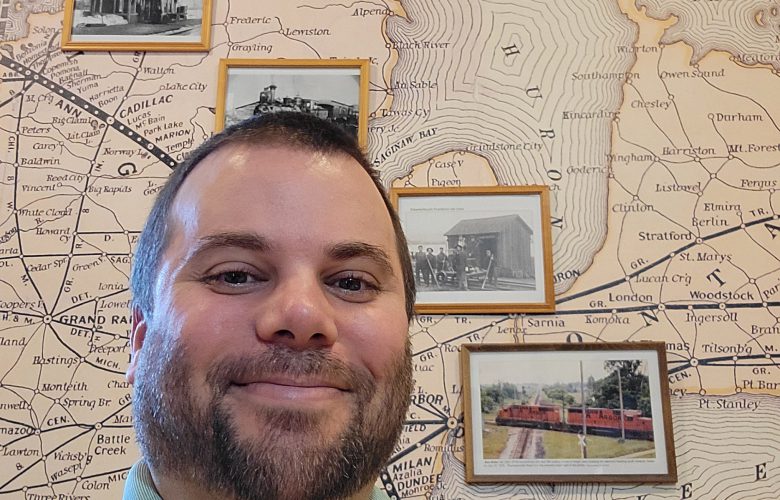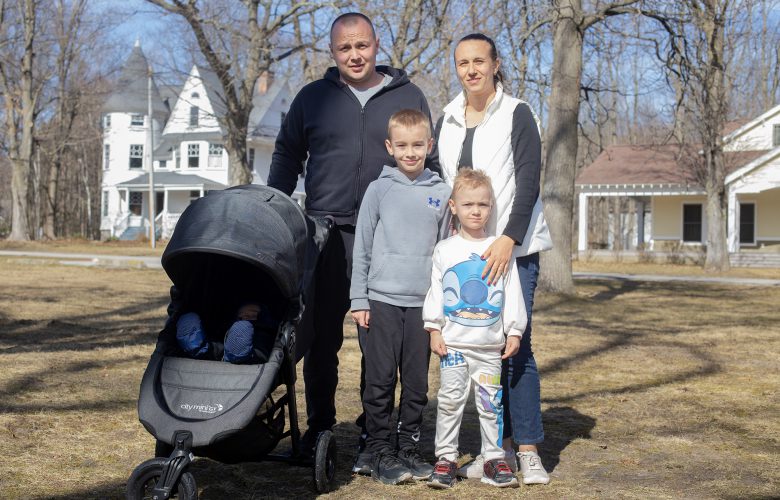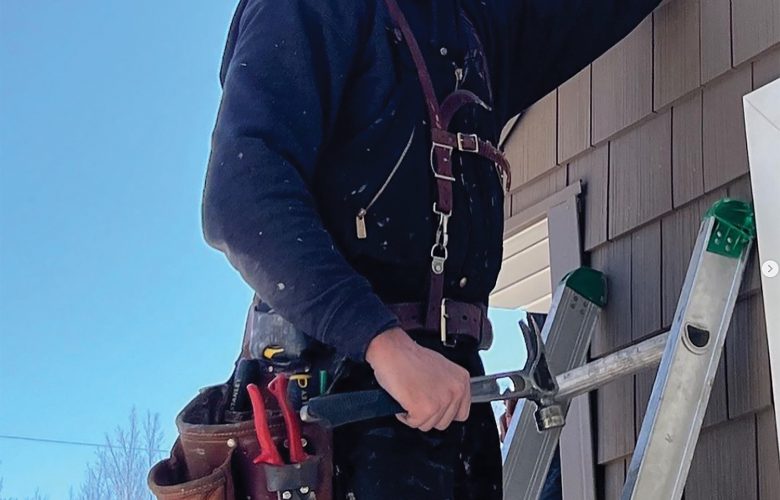A young woman reflects on miscarriage
By Peyton Campbell
Current Contributor
There are moments in life that refocus and reframe the photograph of an individual’s identity. A moment can shatter the illusion caught through a focal lens, and reality will emerge. What was and what will become are separated by a mere moment, the moment of (mis)conception; once just a concept, now a dull throb in the emptiness of my right abdomen.
Now, looking back, these moments cluster together like the cells that once grew within my womb and become one. There was a lifetime before, and now there is only after—separated by the moment when I was no longer a child and began preparing to become a mother.
In the midst of a normal winter’s day, I felt a pain covering my body. I felt my womb contracting and constricting. In child’s pose I sat, losing consciousness and collapsing—I knew I was miscarrying in the worst way.
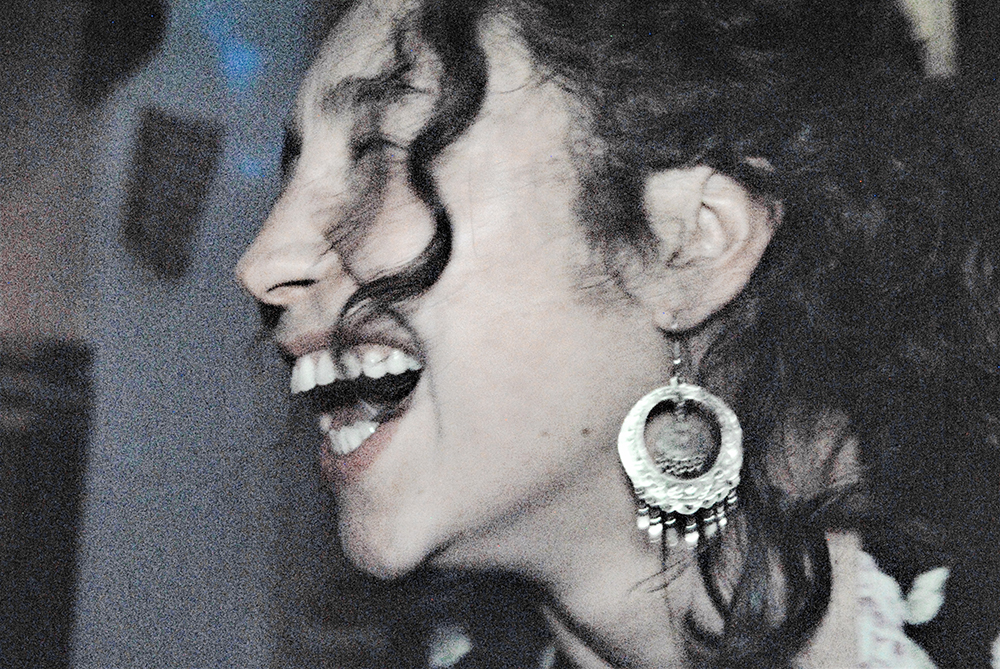
My body held herself in a hibernation on the journey to the hospital. The snow-covered treetops and hillsides blanketed themselves black as my mind retreated far from itself to a place conjured only by self-preservation. Upon arrival, wrist banded and wincing through the discomfort of emptying what I could into a plastic cup, I sat in waiting for the results that would bring me to a hurricane of tears. You are pregnant, but we have concerns, and we need to transfer you to the next hospital immediately.
Despite my fragility of body and mind, I was to sit within the confines of hospital walls alone, due to the pandemic state. My mother acted as my emergency vehicle to the following medical facility, where I was told that they would treat my complicated woes.
For three hours, I stirred with stabbing ache as, one by one, three subsequent doctors each looked over my case and passed it down to the next.
With nobody to advocate for me other than myself, I struggled my way to the front desk, determined to be discharged. I was met by a doctor who explained that my uterus and cervix were expanding—this was the cause of the pain that I was experiencing, and I would need to follow up with my gynecologist to determine the status of my pregnancy later that week. I signed the paperwork and left as a terrified girl about to embrace the next stage of womanhood.
For four days, I slept and ate and walked in a state of agony. Still unsure of the status of my condition, I went to a health foods store and purchased prenatal vitamins and then to a resale store where I chose various-sized, gender-neutral baby clothes. If I were bound to motherhood, I was ready to accept my fate and make it my destiny.
One day later, I was diagnosed with an ectopic pregnancy.
Ectopic pregnancies—which make up 2 percent of all pregnancies and are life threatening—occur when the fertilized egg implants itself outside of the uterus. Due to lack of treatment for the first five days following the moment in which my right fallopian tube ruptured, I watched as my stomach distended beyond my petite frame. For five days, I bled internally and could not pass bowel movement. For those five days, I appeared pregnant with a swollen abdomen.
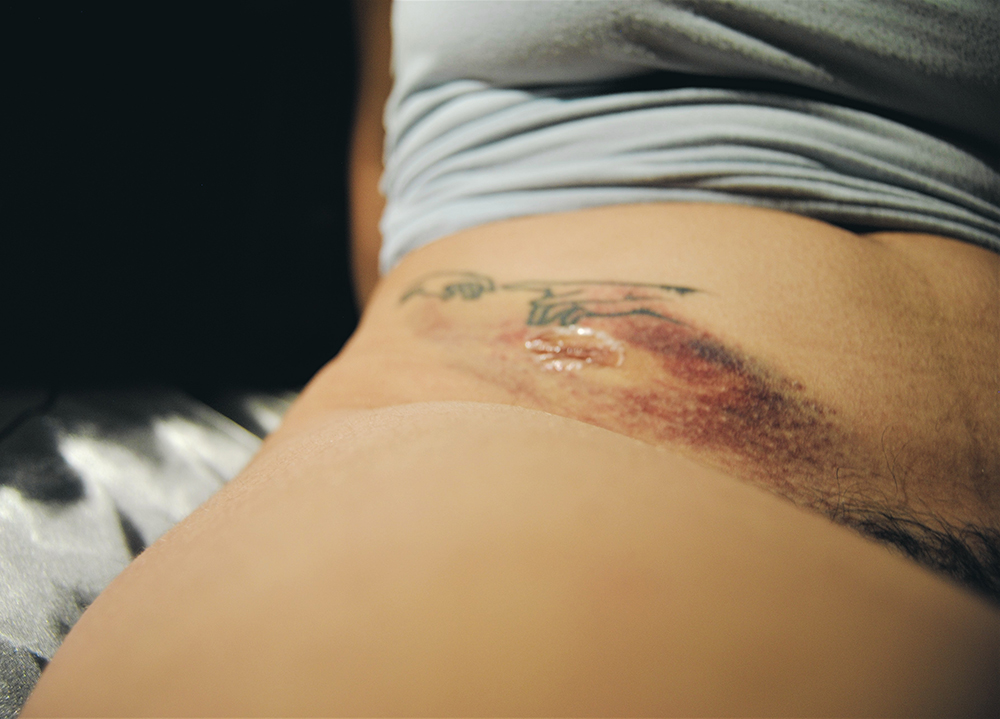
Typically treated through either chemotherapeutic injection or removal of the site in which the embryo has embedded, I was the prizewinner of both. As my body began failing on itself due to infection, the last resort was to perform emergency surgery to remove the life that had tried to make a home in me.
The surgeons and nurses reflected on my demeanor as stoic. Merely surviving at that point, I painted my face with silently shed tears. I watched from outside of myself as what was left of my youth and innocence disappeared. A vital piece in the fabric of my womanhood had to be surgically removed in order for me, my human, to continue forward.
My grief has held many forms: instabilities within employment, radical liberation through artistic expression, unrequited exchange of self, a new understanding of intimacy, a new fear of sexual intimacy, a louder longing to reproduce, somewhat of social ineptitude, hormones that are set off by an infant’s coos, fluctuations of substance use, meditation that releases the sobs I held in while stoic.
I have lost one pregnancy, one fallopian tube, and nearly one year to this personal tragedy. I have aged drastically in the time where I imagine, in another reality, I would be carrying my child to term. I now struggle to relate to my peers, as my experience as a 23-year-old woman is more similar to that of elders within the tribe of those who have lived through loss of pregnancy. I have lost what I never knew I had the capacity to love.
Yet, where there is loss, there is acceptance and something else to gain waiting somewhere on the other side.
I have never taken myself more seriously than where I stand today. I have gained a new sense of self respect, intimacy only shared within myself, understanding of what I truly deserve and expect of a partner, and what I must do to achieve my deepest desire.
What I found on the other side was a hero.
She is strong and powerful and still so soft and full of love. She has a great deal of intuition and had to be initiated young in order to redirect her fate. I no longer look to others for validation of worth, because I now know—within my core—how very worthy we were all along.
To my baby, who just got stuck on their journey to this world: it was not time, and I will always hold you in my heart and fight to be the person you willed me to become. Within a moment, you became my destiny.
Featured Photo Caption: Peyton Campbell reflects on the past year of her life. Photo courtesy of Peyton Campbell.
SIDEBAR
Brown Recluse
There are names for women who lose husbands
What do we call the ones who lose the power of their fertility?
A widowed womb
I hadn’t known my heart lived in my belly
Until it ruptured and was torn away
Now there are scars that will not disappear
The reality of mortality
Alone in my grief, because it wasn’t a baby
I call it an electric fetus instead
Distancing myself from the depression I sat with while abortion was on the table
My legs hanging to the side while I was penetrated by radiation
Ultrasound violence
Two lives flashing before medical eyes
I clung to god
Regaining consciousness
Another chance to live well
Knowing, if I am ever privileged enough to bear children,
What a miracle they will be
Living for the miracle of the unborn
Less a black widow
More a brown recluse
-Poetcried (poetry pen name for Peyton Campbell)


